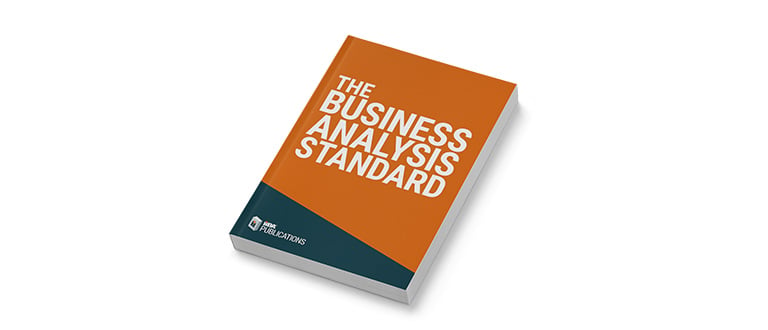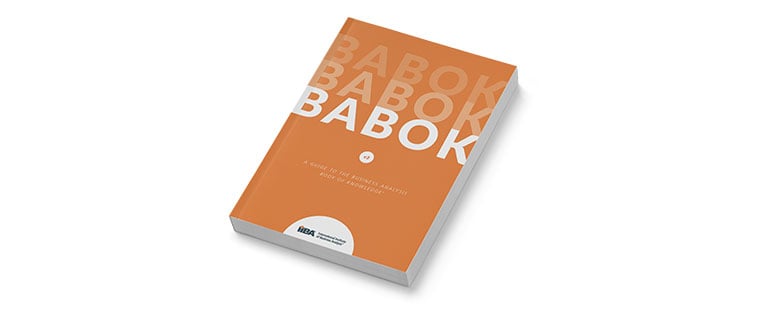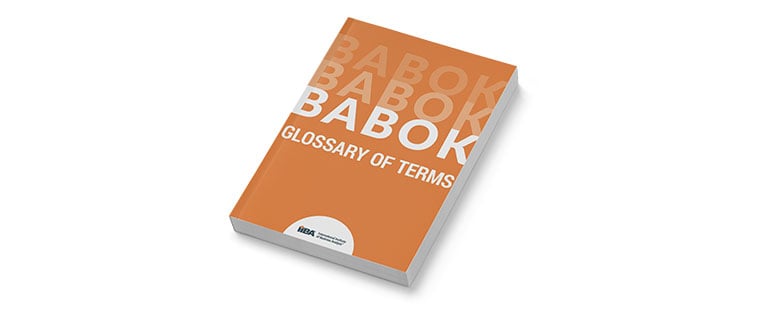A Guide to the Business Analysis Body of Knowledge® (BABOK® Guide)
The globally recognized standard for the practice of business analysis guiding professionals in their work and adopted by enterprises to achieve better business outcomes.
Global Standards of the Business Analysis Profession
Business Analysis Standards, Regulations & Best Practices
A Guide to the Business Analysis Body of Knowledge (BABOK® Guide) is the standard for the practice of business analysis and is for professionals who perform business analysis tasks. Recognized globally as the standard of business analysis, it guides business professionals within the six core knowledge areas, describing the skills, deliverables, and techniques that business analysis professionals require to achieve better business outcomes.
Business Analysis Resources
IIBA’s KnowledgeHub
IIBA’s KnowledgeHub is a brand-new online destination with actionable business analysis content. The KnowledgeHub provides instant online access to the BABOK® Guide, plus community-driven content, such as relevant “how do I” scenarios, videos, tips, tools, and templates that can be applied to everyday business analysis practices.
The Business Analysis Standard
The free Business Analysis Standard represents the fundamental practices of business analysis and delivers a comprehensive view of the foundation for effective business analysis.
Access the StandardBusiness Analysis Body of Knowledge (BABOK®) Guide
The globally recognized standard for the practice of business analysis guiding professionals in their work and adopted by enterprises to achieve better business outcomes.
Access the BABOK ® Guide
BABOK® Guide v3 Errata
A list of corrected errors reported in the BABOK and summary of changes.
BABOK® Guide Glossary
This free glossary gives you access to the foundational terminology of the practice of business analysis found in the BABOK® Guide.
Access the GlossaryBusiness Analysis Competency Model
The Business Analysis Competency Model® describes the knowledge, skills, abilities, and personal characteristics required for a person to perform effectively as a business analysis professional.
Business Analysis Standards and Methodologies
Perspectives
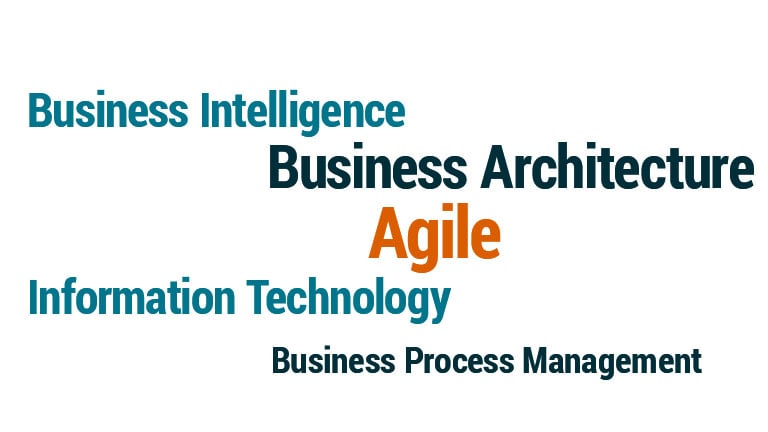
Perspectives are used within business analysis work to provide focus to tasks and techniques specific to the context of the initiative and may involve one or more perspectives.
Knowledge Areas
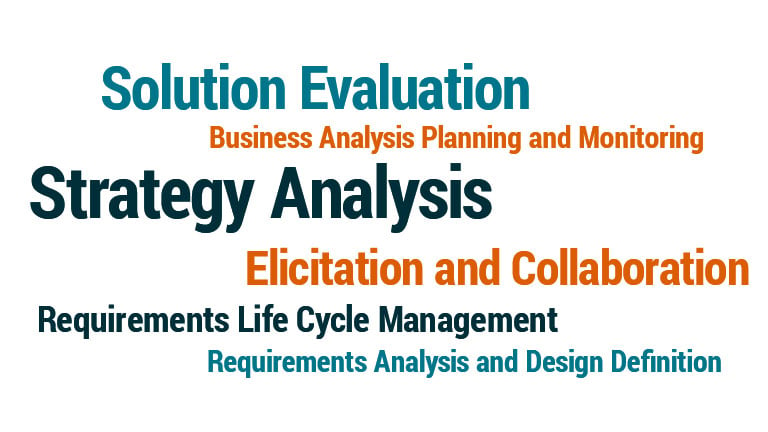
The BABOK Guide defines six knowledge areas. These are groupings of the tasks. Tasks that are related to the same business analysis expertise are grouped in the same knowledge area.
Techniques
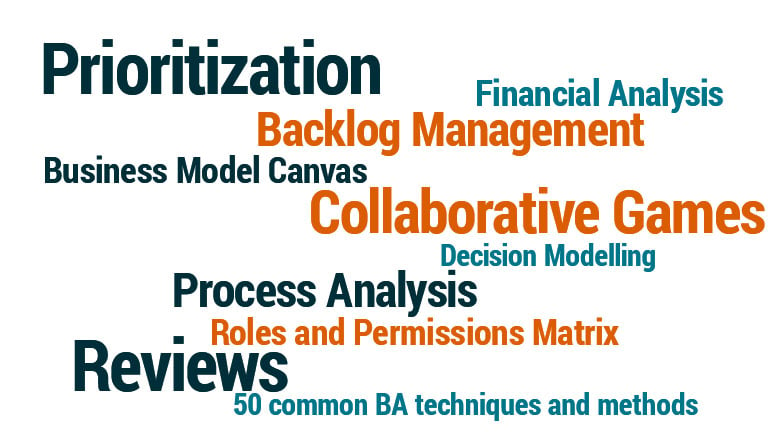
Techniques are methods that business analysis professionals use to perform business analysis tasks. Business analysis professionals apply their experience and judgement demonstrated in their competencies to select and perform a technique to achieve a successful outcome.
A disciplined approach for introducing and managing change for organizations
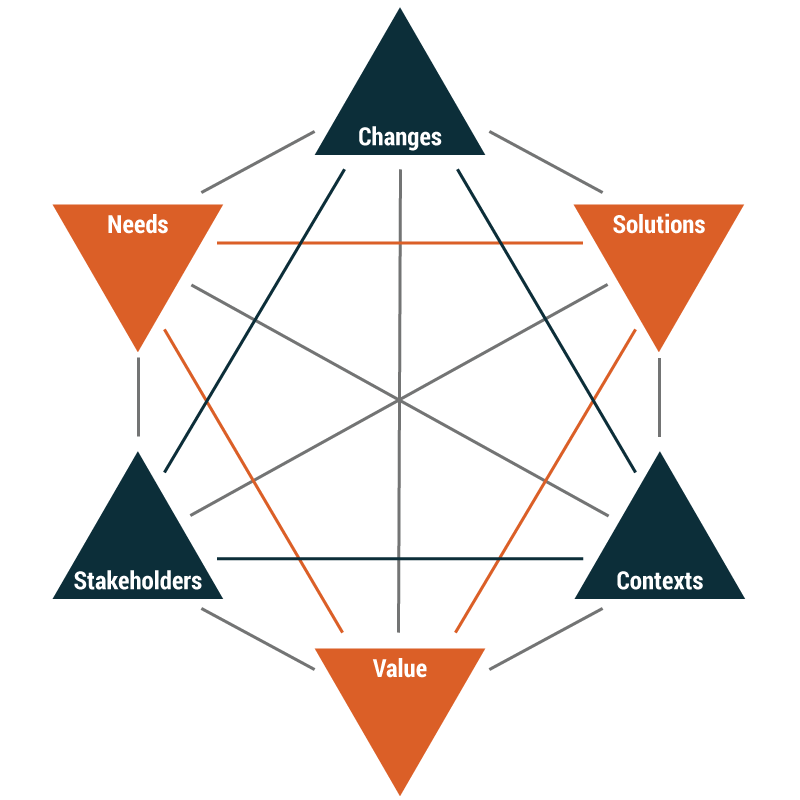
“The practice of enabling change in the context of an enterprise by defining needs and recommending solutions that deliver value to stakeholders; it is using a specific set of tools and techniques to uncover and analyse the needs or potential opportunities in order to drive business value delivery and success.”
-BABOK Guide
A Guide to the Business Analysis Body of Knowledge® (BABOK® Guide)
The BABOK® Guide is the key resource to help discover opportunities for business success, deliver successful organizational change, and create business value at the strategic, tactical, and operational level.
A common language for the practice of business analysis
A Guide to the Business Analysis Body of Knowledge® (BABOK® Guide) is developed through a rigorous consensus-driven standards process, the BABOK® Guide incorporates the collective wisdom and experience of experts in the field from around the world. It defines the skills and knowledge required by business analysis professionals covering the six knowledge areas and the business analysis competency model.
The latest version of the guide extends its scope beyond business analysis in projects to address agile development, business process management, business intelligence, and business architecture. It includes:
- A concept model that unifies ideas and terminology across business analysis disciplines.
- Restructured knowledge areas to support business analysis at every level from small tactical initiatives to major business transformations.
- Five perspectives covering the most prominent business analysis disciplines and demonstrating how to apply the knowledge areas in different situations.
- Coverage of new business analysis techniques that have gained wide acceptance in the community.
- Updated and revised content in every knowledge area and more!

